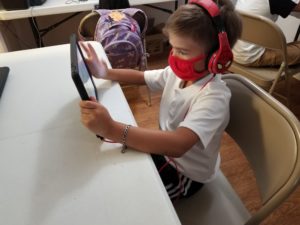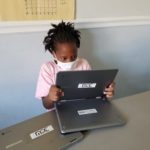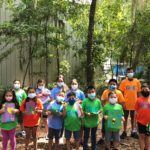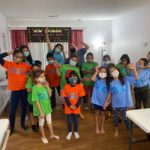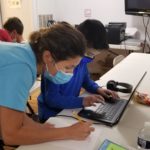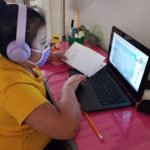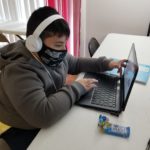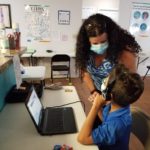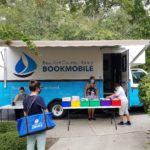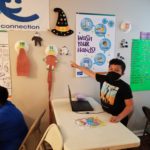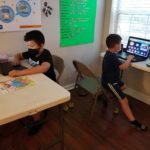
January 18, 2021 is the day we celebrate Dr. Martin Luther King. Dr. King provided a road map for human progress, social justice, and dignity. Dr. King understood the power of love, compassion, and tolerance to create a just and fair society. He saw poverty and lack of opportunity as negative forces undermining human dignity, independence, and self-reliance.
NOC continues Dr. King’s legacy by helping those who are in need, and those who are vulnerable and less fortunate.
Our lives begin to end the day we become silent about the things that matter.
Dr. Martin Luther King, Jr.
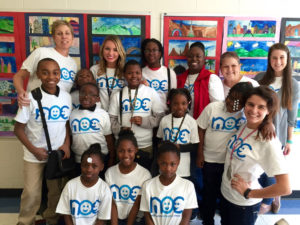
 On November 5, children at NOC’s Island Lutheran Learning Center were treated to a very special visitor – Zoara the Comfort Dog. Zoara is an AKC Golden Retriever that visits local hospitals, schools, senior centers/nursing/care centers, hospice, charities, and community organizations.
On November 5, children at NOC’s Island Lutheran Learning Center were treated to a very special visitor – Zoara the Comfort Dog. Zoara is an AKC Golden Retriever that visits local hospitals, schools, senior centers/nursing/care centers, hospice, charities, and community organizations.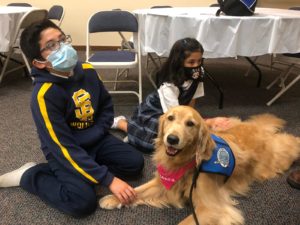
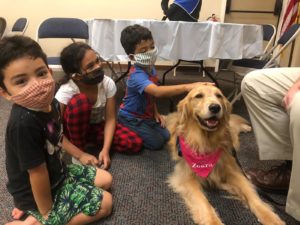
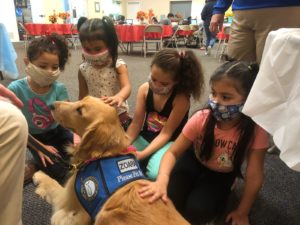
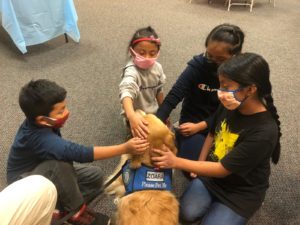
 Dr. Narendra Sharma, NOC founder and chair, made a presentation on October 28, 2020, to members of the Board of Directors and staff of the Community Foundation of the Lowcountry. He discussed NOC’s development approach and business model for promoting community development locally, drawing on NOC’s experience and successful results in the local community over the past 12 years. He emphasized NOC’s neighborhood-centric approach to developing and maintaining strong relationships with people residing in target neighborhoods. In this context, Dr. Sharma spoke about NOC’s new Learning Center, located at 4 Southwood Park Drive on Hilton Head Island, SC. This facility, operating as NOC’s flagship center, will meet the needs of children and families living in four low-income neighborhoods where poverty is significant: Sandalwood, Oaks, Hilton Head Gardens, and Woodlake Apartments. Through this new Learning Center, NOC will implement afterschool and summer learning programs for children, periodic health screenings, and workforce/community development programs.
Dr. Narendra Sharma, NOC founder and chair, made a presentation on October 28, 2020, to members of the Board of Directors and staff of the Community Foundation of the Lowcountry. He discussed NOC’s development approach and business model for promoting community development locally, drawing on NOC’s experience and successful results in the local community over the past 12 years. He emphasized NOC’s neighborhood-centric approach to developing and maintaining strong relationships with people residing in target neighborhoods. In this context, Dr. Sharma spoke about NOC’s new Learning Center, located at 4 Southwood Park Drive on Hilton Head Island, SC. This facility, operating as NOC’s flagship center, will meet the needs of children and families living in four low-income neighborhoods where poverty is significant: Sandalwood, Oaks, Hilton Head Gardens, and Woodlake Apartments. Through this new Learning Center, NOC will implement afterschool and summer learning programs for children, periodic health screenings, and workforce/community development programs.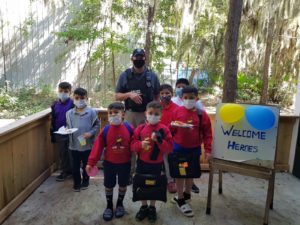 Several members of the Bluffton Police Department recently visited NOC’s Onyx Learning Center in Bluffton to build positive relationships with children and families living in the ONYX Apartment complex. Members of the Police Department helped children complete their homework and also reinforce reading skills. The children were happy to meet members of the Police Department in their neighborhood.
Several members of the Bluffton Police Department recently visited NOC’s Onyx Learning Center in Bluffton to build positive relationships with children and families living in the ONYX Apartment complex. Members of the Police Department helped children complete their homework and also reinforce reading skills. The children were happy to meet members of the Police Department in their neighborhood. 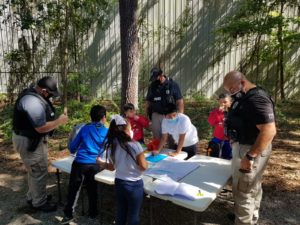
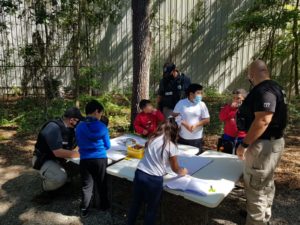
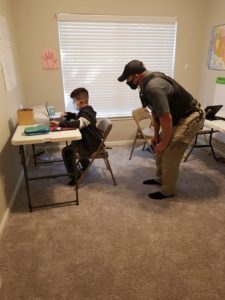
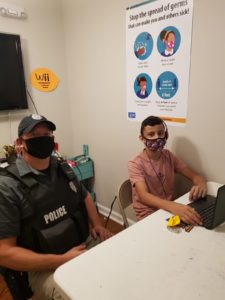
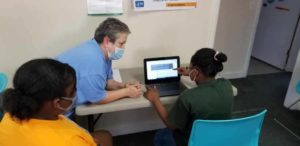 NOC’s learning centers provide children an enabling environment for academic achievement through improved skills in math, reading, and language arts. Additionally, NOC’s centers provide children a platform for positive social and emotional integration and sense of community. While they are at the centers, children can leave behind the stress and anxiety resulting from the coronavirus pandemic. NOC’s after school learning program has become an important option for children in the absence of face-to-face learning.
NOC’s learning centers provide children an enabling environment for academic achievement through improved skills in math, reading, and language arts. Additionally, NOC’s centers provide children a platform for positive social and emotional integration and sense of community. While they are at the centers, children can leave behind the stress and anxiety resulting from the coronavirus pandemic. NOC’s after school learning program has become an important option for children in the absence of face-to-face learning.